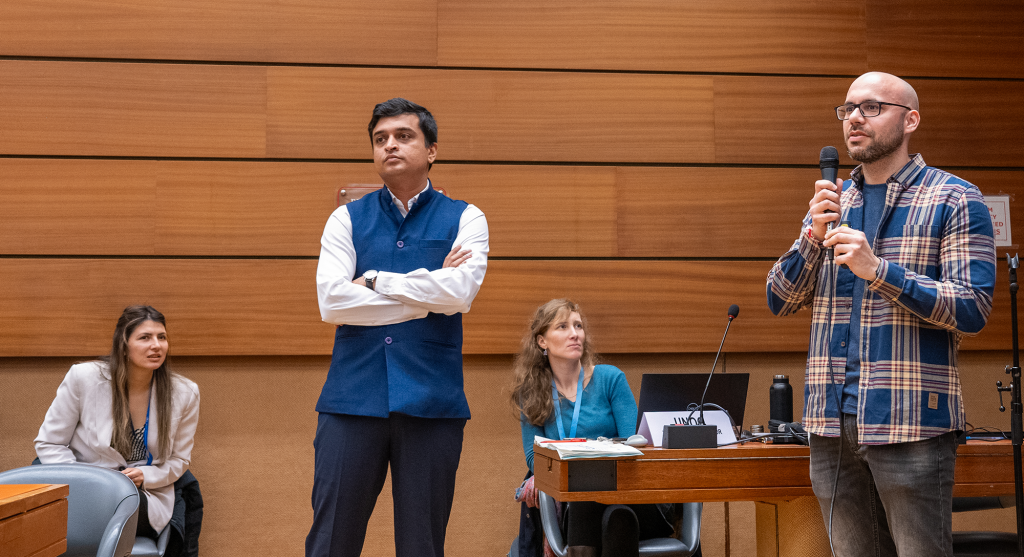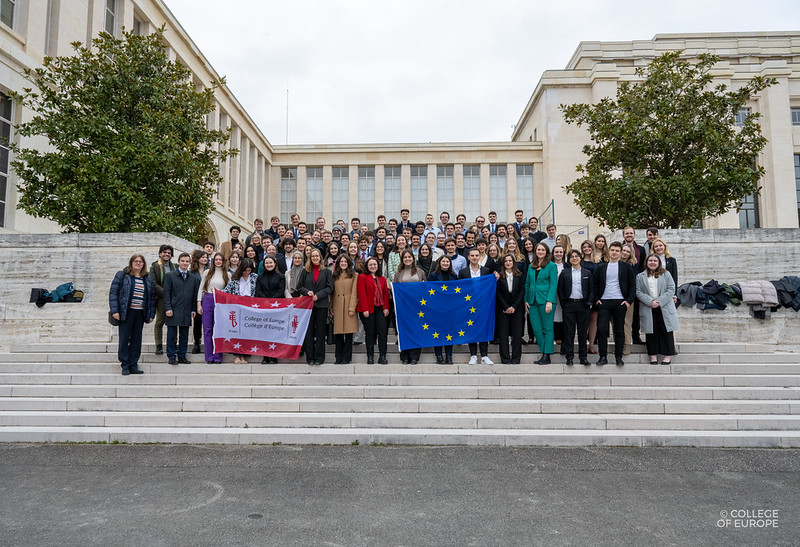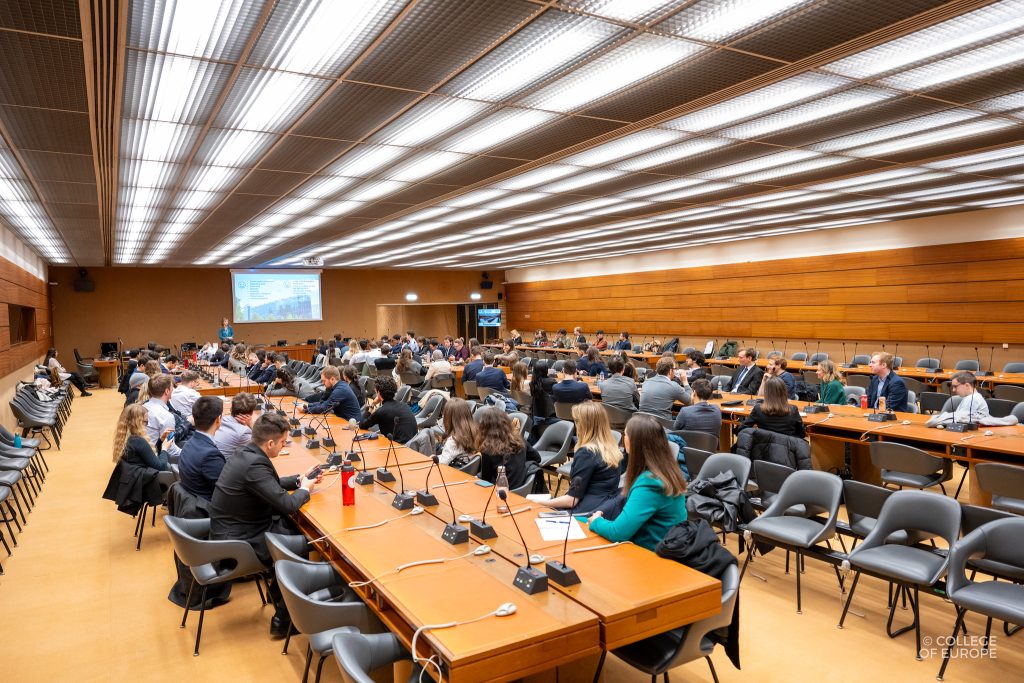Why is education and training important for climate action and climate policy?
That’s what the Green Development and Climate Change Programme Unit (GCP) set out to answer during a field trip of master students from the College of Europe’s EU International Relations and Diplomacy programme.
The students came from Brugge, Belgium, on March 4th 2024 to visit International Geneva and learn more about the work of various international organizations and the coordination between the European Union member states in the context of multilateral diplomacy. They took part in a two-day programme at Palais des Nations, where they visited the European Headquarters of the United Nations, and attended presentations by DiploFoundation, IPCC, UNHCR, WHO, and UNITAR.
On behalf of UNITAR’s GCP, Mr. Lucas Terra and Mr. Abhinandan Banarjee walked the students through two of GCP’s main projects: UN CC:Learn and the Partnership for Action on Green Economy (PAGE).
Mr. Terra introduced UN CC:Learn and spoke about the different activities being carried out by the programme, notably the e-learning platform (UN CC:e-Learn), and the country projects. He highlighted the role education and training have in driving action on climate change, and how UN CC:Learn’s in-country and global initiatives play an important part in this agenda. Mr. Terra showcased UN CC:Learn’s some of UN CC:Learn’s main achievements to date, such as the development of 13 National Climate Change Learning Strategies and the issuance of over 380,000 certificates of completion.

Mr. Terra and Mr. Banarjee presenting UN CC:Learn and PAGE to the students from College of Europe. Photo Credit: College of Europe.
Mr.Banerjee introduced the students to the Partnership for Action on Green Economy, and how it brings together the expertise of 5 specialised UN Agencies, including UNITAR, to foster a holistic transition to an Inclusive Green Economy in several countries across the world. He discussed, some of the capacity-building initiatives that UNITAR spearheaded as part of PAGE, both globally, and in specific partner countries, and highlighted how multiple agencies, with different strengths can effectively collaborate to achieve tangible outcomes on the ground.
To conclude their presentation, they showcased the stories of two GCP beneficiaries who are making a difference in their communities: Ms. Asha Alexander and Mr. Mamunur Rahman. Ms. Alexander is a school principal in Dubai, UAE, who completed UN CC:Learn courses. She’s encouraging thousands of students and teachers to follow in her footsteps and complete at least six UN CC:Learn courses. Mr. Rahman took part in a PAGE training that inspired him to become a social entrepreneur in Bangladesh. He founded Ella Pad and now supports thousands of factory-working women by providing sanitary pads and protective masks made from garment scrap from the factories.
To wrap up the session, both Mr. Terra and Mr. Banarjee took questions from the audience. The students were keen to better understand the development process of courses, particularly how their content is prioritized, developed, and vetted. They were also keen to understand how PAGE and UN CC:Learn engage with governments in the area of training and capacity development.

College of Europe students at the Palais des Nations. Photo Credit: College of Europe

